
پشتیبانی
International Forum of Young Poetesses report
Great Silk Way International Youth Union organized the International Forum of Young Poetesses on June 8-11, 2017. This year, the forum was dedicated to Khurshidbanu Natavan - one of the best lyrical poets of Azerbaijan. She was daughter of Mahdiqoli Khan, the last ruler of the Karabakh Khanate, and was most notable for her lyrical Ghazals.
International Forum of Young Poetesses is an international project implemented by the “Great Silk Way” International Youth Union and its member organizations. The Forum is aimed at creating a space for young and talented artists from the countries, historically connected with cultural bounds of the Silk Road, for self-expression, exchange and discussions on common challenges.
The 1st Forum was held on 26-28 April 2013 in Baku with participation of young poetesses from 20 countries. 2nd Forum also held in same city on 12-15 March 2014. The project was awarded as The Best Cross-Border Project 2013 in the category of “Culture” implemented in the Eastern Partnership region, within the framework of the Eastern Partnership Initiative’s Congress on 1-3 October, in Lublin, Poland
Salaam Global Foundation nominated Ms. Hajar Farhadi to participate in the forum.
In the opening ceremony attended by Azerbaijani officials, ambassadors and literature lovers, Fuad Muradov, Chairman of Azerbaijan National Assembly Youth and Sport Committee and Chairman of GSWIYU, Fuad Babayev, Head of Youth Department in Azerbaijan Youth and Sport Ministry and Farhad Hajiyev, Executive Director of Azerbaijan Youth Foundation made speech and then poetesses delivered poets in their native languages.
After the opening ceremony poetesses participated in workshops with Azerbaijani poets Nigar Hasanzadeh and Leyla Sharifeva was held in Nizami Ganjavi Museum of Literature.
Visiting Baku historical monuments and meeting with president of Azerbaijan Poets Association were also among programs.
Great Silk Way” IYU is an international non-commercial organization established to coordinate the activities of youth organizations and to represent and protect their common interests. The main aim and the scope of activities of the organization is promoting the intercultural and interreligious dialogue, create mutually beneficial collaboration, as well as to spread the idea of usage of the potential of youth for sustainable development among the Silk Road countries.
Young people from 28 Silk Way countries established the "Great Silk Way" International Youth Union, during the 1st Great Silk Way International Youth Congress, on June 27-29, 2012 in Baku, Azerbaijan.
Salaam Global Foundation in cooperation with Tehran Peace Museum and Non Aligned Movement Center for Human Rights and Cultural Diversity held meeting on World Day for Cultural Diversity for Dialogue and Development for discussion and exchange of ideas on cultural diversity, peace, dialogue and development on 25 May 2017. This meeting brought experts and scholars from different fields together.
In the beginning Dr. Alireza Moayyeri, Chairman of the Board of Trustees of Salaam Global Foundation introduced the program while welcoming participants. In few words he talked about his experience as Iran representative to UNOG and Human Rights Council. He believed that some human rights arguments about Iran are politically motivated.
After introduction panel on cultural diversity, dialogue and development started by moderation of Yasser Salimi, vice-chair of international relations and diplomacy committee of Salaam Global Foundation. Two other panelists were Seyyed Mohammad Hasani, Head of Non-Aligned Movement Center for Human Rights and Cultural Diversity and Yalda Khosravi, Head of Peace Studies Group in Tehran Peace Museum.
At first Yasser Salimi introduced two guests and motioned that as they are both PhD candidates in Law the discussion will mostly focus on Human Rights.
Then Seyyed Mohamad Hasani made his intervention on human rights and cultural diversity. He said there are two major approaches to HR, universality based on 1948 UDHR and relativism based on cultural and religious principles. He believed presence of African HR and People charter, European HR Convention, Islamic Declaration of HR and American HR convention shows there is no consensus on HR. He believed there is no much difference in these documents but Islamic HR Declaration is different and is based on ideology.
In World Conference on Human Rights declaration despite emphasis on human rights universality cultural diversity is also mentioned there.
He also talked about resolution on HR and cultural diversity and said it was not able to address serious issues. He added: different cultures have different understandings of HR and have strong reasons for them and main point is intercultural dialogue on this issue and UN has not set appropriate mechanism for that.
Then Yalda Khosravi made her intervention on HR and peace. She said different understanding of HR refers to unclear theoretical basis. She believed HR introduced in UDHR has four characteristics. Its subject is individual and protects it from government. It is an instrument not value and is a mechanism for peaceful coexistence. It is minimalistic and protects individuals with minimal standards. It is neutral from ethical point of view and has nothing to do with content of the right.
She added: concept of peace is mentioned in UN charter and UDHR preamble. In international law peace is goal but in peace studies it is not only absence of war but it’s a process. Every culture has an understanding form beauty and truth which could be used. We can know ourselves through knowing others therefore cultural diversity should be preserved.
She said main activity of Tehran Peace Museum is making a platform for dialogue and understanding and mentioned two projects for bringing young peace makers all over Iran and globally together.
After the interventions question and answer session started. Dr. Ali Hakimattar Head of Salaam Global Foundation BoD said it seems with growing of social media we witness unification of cultures and diversity is diminishing. Dr. Hosseini, Member of Salaam Global Foundation Trustees Board asked the panelists if economy is more important element here or culture. He made an example from US and KSA relations despite cultural differences. Seyyed Mohammad Hassani answered this shows the culture of these countries since another country with different culture will not do the same. In the end Yasser Salimi, summarized the discussions. He mentioned Salaam Global Foundation participation in World Intercultural Forum in Baku. He also introduced UN Alliance of Civilizations as a comprehensive mechanism for dialogue among cultures and civilizations and its focus areas like education, media and youth.
The World Forum on Intercultural Dialogue held biannually in Baku has taken responsibility for delivering the global agenda on the Dialogue among Civilizations adopted by the United Nations General Assembly (November 2001), the UNESCO Convention on Protection and Promotion of the Diversity of Cultural Expressions (2005), the Islamic Declaration on Cultural Diversity, which was adopted by ISESCO in 2004, Declaration and Action Plan of the Third Summit of the Heads of State and Government of the Council of Europe member states, the Council of Europe White Paper on Intercultural Dialogue (May 2008), as well as the Baku Declaration for the Promotion of Intercultural Dialogue.
In cooperation with UNESCO, UN Alliance of Civilizations, UN World Tourism Organization, Council of Europe, ISESCO, North-South Center of the Council of Europe 4th WORLD FORUM ON INTERCULTURAL DIALOGUE was held on May 5-6 in Baku, Republic of Azerbaijan.

Ilham Aliyev, President of Azerbaijan in his opening speech said goal of the forum is fostering dialogue among different nations. He mentioned to conflicts around the world and civil wars and violence in some countries in the region as concerning and said: human community needs dialogue and understanding more than ever and its realization could have positive effects on all fields.
Aliyev mentioned his country activities in promoting intercultural dialogue and said: 2017 is announced in Azerbaijan as year of Islamic solidarity.

Irina Bokova, DG of UNESCO also said destruction of cultural, historical and artistic heritage due to conflicts around the world is concerning.
She mentioned fostering of violence, Islamophobia and children deprivation from education and said: we should face to these challenges together and take meaningful steps.
Yasser Salimi, Deputy Chair of International Relations and Diplomacy Committee and Chair of Youth Committee of Salaam Global Foundation also participated in the forum. He attended in some sessions including "The emergence of new nationalism: How to prevent rising of populism and polarization", “Empowering youth to prevent violent extremism through education” and “The role of Cities’ policies in promoting dialogue among cultures” and discussed and exchanged ideas with the participants. While introducing Salaam Global Foundation he examined possible cooperation areas with other participants and their entities.
Why does cultural diversity matter?
Cultural diversity, along with inter-cultural dialogue, has become one of today’s most pressing contemporary issues. Almost no country is entirely culturally homogeneous and two thirds of the world’s nearly 200 countries contain at least one substantial ethnic or religious minority making up at least 10% of the population. Equitable exchanges and encounters between cultures and peoples, based on mutual understanding and respect and the equal dignity of all cultures is the essential prerequisite for constructing social cohesion, reconciliation among peoples and peace among nations. Safeguarding cultures, then, aims to ensure space for and freedom of expression to all of the world’s cultures. Moreover, we are becoming increasingly aware of cultural diversity, an awareness that is facilitated by the globalization of exchanges and the greater receptiveness of societies to one another.
Cultural diversity is a driving force of development, not only with respect to economic growth, but also as a means of leading a more fulfilling intellectual, emotional, moral and spiritual life. This is captured in the seven culture conventions, which provide a solid basis for the promotion of cultural diversity. Cultural diversity is thus an asset that is indispensable for poverty reduction and the achievement of sustainable development.
At the same time, acceptance and recognition of cultural diversity – in particular through innovative use of media and Information and Communications Technologies (ICTs) – are conducive to dialogue among civilizations and cultures, respect and mutual understanding.
In 2001, UNESCO adopted the Universal Declaration on Cultural Diversity and in December 2002, the UN General Assembly, in its resolution 57/249, declared May 21 to be the World Day for Cultural Diversity for Dialogue and Development.
Salaam Global Foundation is going to hold a meeting on World Day for Cultural Diversity for Dialogue and Development for discussion and ideas exchange on cultural diversity, peace, dialogue and development. This meeting is a platform for raising awareness about importance of intercultural dialogue which brings experts and scholars from different fields together.
We hear a great deal about innovation these days, and for good reason. Innovation lies at the heart of our social and economic wellbeing.
Innovation – and the technological progress it represents – makes a significant contribution to economic growth and creates opportunities for new and better jobs.
We often do not take enough time to think about the many ways in which innovation improves the quality of our lives. One only has to compare the way we live today with the way we lived 100 years ago. Over the past century we have seen an extraordinary transformation in the quality of our material lives, thanks to the introduction of countless new and improved technologies and products. And with extraordinary new technologies such as virtual reality, artificial intelligence, 3D printing, neuromorphic computer chips, nanotechnology, robotics, CRISPR gene-editing and more coming on stream, the prospects for further progress are very bright.
What, you may ask, does intellectual property have to do with all of this?
Intellectual property is a crucial part of a successful innovation system. It provides a return for those who take the risk to introduce the “new” – in terms of products and services – into the economy. It provides a framework for the rather difficult and challenging journey that any idea has to undertake before becoming a commercially available product or service.
With this year’s World Intellectual Property Day campaign we are celebrating innovation and how it improves our lives. We are also celebrating all the risk-takers, all those who have dared to bring about positive change through innovation.
This year’s campaign is an opportunity for us all to think about what it actually takes to invent something and the challenges associated with that process. It is also a chance for us to consider how we can make innovation really work for the benefit of the whole of society.
I wish you all a very happy, fruitful and innovative World Intellectual Property Day.
Salaam Global Foundation organized a meeting on April 27, 2017 to celebrate World Intellectual Property Day to raise awareness about how innovation could improve lives. The meeting was held in the presence of Members of the trustee board members, executive board members, committee members and experts in the field of innovation and international relations, engineering and other fields.
At the beginning of the meeting, Dr. Moayyeri talked about his experience on Iran relation with WIPO during his tenure as Iran Rep to UNOG and other international organizations in Geneva. He also mentioned that currently IP is thought in some Iranian universities as an academic major.
Dr. Ali Hakimattar saw the meeting in line with SGF and UN goals and informed on upcoming meetings to commemorate international days.
Keynote Speaker Dr. Sara Salimi presented his intervention on Innovation and IP. She explained about concepts like patent, industrial design and structured innovation and role of IP in promoting them.
Saeed Emami said one of foundation goals is proposing policies to decision makers and suggested that result of meeting to be published as a policy paper.
Mahmoud Saneipour delivered a summary of his report titled” Innovation, IP and its effects on Iran culture and economy”.
He counted suspicion about IP as a barrier made by West to prevent development of other countries as one of problems. He believed that promotion of IP in Iran needs an industrial revolution.
Ali Akbar Koohestani as an inventor described his experience in registering his invention briefly and challenges he faced.
Mehdi Saatian also described lack of commercializing cycle as a barrier for innovation.
Keynote Speaker: Dr. Sara Salimi
Debaters:
1- Mahmoud Saneipour, Member of SGF EB, Former Governor of Tehran Province, Former Deputy Minister of Housing and Urban
2- Dr. Alireza Moayyeri, Chair of SGF TB, Former Deputy FM
3- Mohammad Ali Hosseini, Member of SGF TB, PhD in Higher Education Administration, Associate Professor of Education Management in University of Social Welfare and Rehabilitation Sciences
4- Saeed Emami, CEO of SGF
5- Eng. Ali Akbar Koohestani, Treasurer of SGF
6- Eng. Mehdi Saatian, Expert in TRIZ and Innovation
7- Dr. Bahram Yegane, Member of SGF TB
8- Yasser Salimi, Vice-Chair of IR Committee of SGF
9- Dr. Ali Hakimattar, Chair of Executive Board SGF
World Intellectual Property Organization which is a self-funding agency of the United Nations has introduced its founding date 26 April as World Intellectual Property Day. Every year a theme is introduced for this day which is “Innovation Improving Lives” for 2017.
As one of Salaam Global Foundation goals is promoting social innovation it is going to study role of intellectual property in innovation by commemorating this day in presence of experts in fields of international relations, international law and innovation.
Mother Earth is a common expression for the planet earth in a number of countries and regions, which reflects the interdependence that exists among human beings, other living species and the planet we all inhabit.
United Nations declared 22 April as International Mother Earth Day to recognize the responsibility we have to promote harmony with nature and the Earth to achieve a balance between economic, social and environmental needs of present and future generations.
The impact of our neglectful stewardship is being felt most by the world's most vulnerable people: those who live on the desert margins; indigenous communities; the rural poor; the inhabitants of the squalid slums of the world's expanding megacities. If they are to break out of the poverty trap and prosper, they need –at the very minimum –fertile land, clean water and adequate sanitation.
As a global community, we have the opportunity to make changes. Salaam Global Foundation asks people to do something good for our mother earth and take pictures to be seen by the world.
Email: این آدرس ایمیل توسط spambots حفاظت می شود. برای دیدن شما نیاز به جاوا اسکریپت دارید



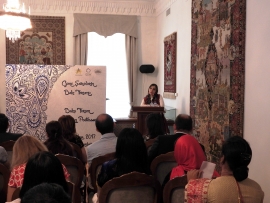
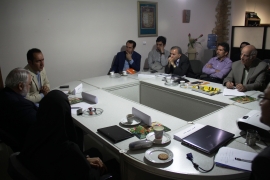
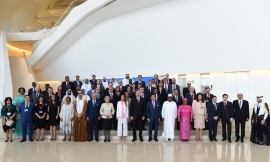
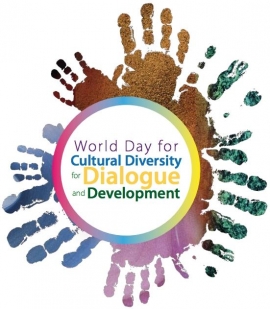
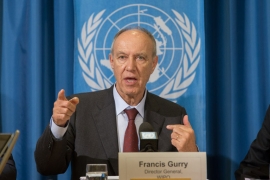
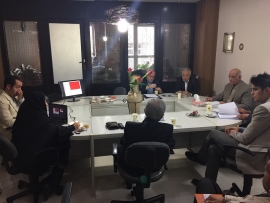

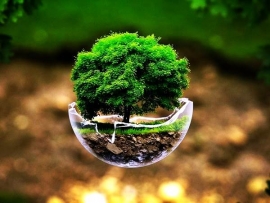
انجمن حامیان استاندارد